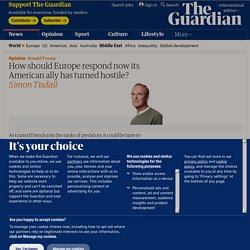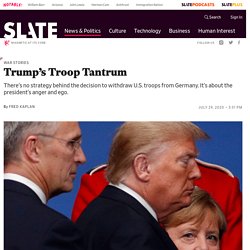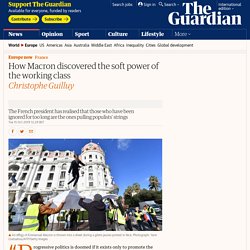

UK faces 'Covid decade' due to damage done by pandemic, says report. Britain faces a “Covid decade” of social and cultural upheaval marked by growing inequality and deepening economic deprivation, a landmark review has concluded.

Major changes to the way society is run in the wake of the pandemic are needed to mitigate the impact of the “long shadow” cast by the virus, including declining public trust and an explosion in mental illness, the British Academy report found. Published on the anniversary of the UK’s first lockdown, the report brings together more than 200 academic social science and humanities experts and hundreds of research projects. It was set up last year at the behest of the government’s chief scientific adviser, Sir Patrick Vallance.
The British Academy warned that failure to understand the scale of the challenge ahead and deliver changes would result in a rapid slide towards poorer societal health, more extreme patterns of inequality and fragmenting national unity. Areas for action highlighted by the report include: How should Europe respond now its American ally has turned hostile? Making his celebrated return from exile in April 1917 to take up the reins of the Russian revolution, Vladimir Lenin caught a ferry to Sweden from Sassnitz, a small Baltic coastal town in north-east Germany, before taking the train to Finland station in Petrograd, the city that became Leningrad and is now St Petersburg.

Sassnitz’s moment in the historical spotlight was fleeting. Now, thanks to Donald Trump’s blundering buddies, it’s back there again. A trio of Republican senators – Ted Cruz, Tom Cotton and Ron Johnson – are threatening to wreak terrible punishment on Sassnitz, its elected officials and residents who make their living from the port.
Trump’s impulsive and counterproductive decision to remove U.S. troops from Germany. The Pentagon has started to execute President Donald Trump’s order to withdraw one-third of the U.S. troops in Germany—reducing their numbers from 36,000 to 24,000.

Three things about this move are already clear. First, far from being “a major strategic and positive shift,” as Secretary of Defense Mark Esper characterized it at a news conference Wednesday, it is purely an outburst of Trump’s angst and revenge, aimed at German Chancellor Angela Merkel, for various slights against him. 'A chain of stupidity': the Skripal case and the decline of Russia's spy agencies. In 2011 I was in Libya reporting on the civil war.

Rebels backed by the US, the UK and France were advancing on the capital, Tripoli. The insurgents moved forward through bombed-out towns as Muammar Gaddafi’s forces retreated. Coastal cities in the west and east, oil refineries, Roman ruins and temples – all fell, one by one, as the regime lost ground. These were dangerous times. Ireland’s shock poll result was a vote against the success of globalisation. In 2011, in what seemed like a laying to rest of the mad ghosts of Anglo-Irish history, the Queen was cheered to the rafters in Dublin.

But the building in which this celebration of amity took place had its own rather haunting presence. It was the spanking new Convention Centre, a glamorous, ultra-modern monument to the optimism of the Celtic Tiger years. By the time of the Queen’s visit, it looked out on a landscape of shattered dreams. How Macron discovered the soft power of the working class. “Progressive politics is doomed if it exists only to promote the interests of the middle classes,” French president Emmanuel Macron recently warned a large group of parliamentarians and ministers from his centrist La République En Marche (LREM) party and the Mouvement Démocrate (Modem).

In particular, he cited the issue of immigration. He said the subject “had to be faced” and explained that he saw an essential difference between the middle and working classes: the latter are in contact with immigration, the former are not. “We have no right to dodge this issue. The question is whether or not we want to be a middle-class party. The middle classes are not bothered by this [immigration]: it doesn’t impinge on them. But Macron’s epiphany didn’t stop there; he appeared to be changing his mind about how France is organised territorially. Flüchtlinge - Die EU hat zwei grobe Fehler gemacht. Das Flüchtlingsdrama im Mittelmeer kann nur noch durch einen Befreiungsschlag gelöst werden, der seinen Ausgang in Berlin hat.

Und zwar als Teil eines umfassenderen Plans. Kommentar von Thomas Kirchner Nach der schweren Krise 2015 hat die Europäische Union vieles richtig gemacht in der Asyl- und Migrationspolitik. Stärkung des Grenzschutzes, Aufnahme- und Registrierungszentren, Reformen bei den Asylprozeduren, Kooperation mit Herkunfts- und Transitstaaten, effizientere Abschiebungen, direkte Umsiedlungen aus den Krisengebieten, das Abkommen mit der Türkei und vieles mehr: Man kann über Details streiten, das meiste war nötig und sinnvoll. Zweierlei aber hat die EU grob falsch gemacht, und es sind diese Fehler, die zu den gegenwärtigen Problemen führen. Europa verhandelt auch mit Diktatoren - aber es gibt Grenzen des Zulässigen Das lässt sich mit dem Türkei-Abkommen illustrieren.
Was aber Libyen betrifft, ist die Grenze des Zulässigen weit überschritten. Das wäre so human wie praktikabel. Richard Swartz: die Einsamkeit der Osteuropäer in unseren Tage.